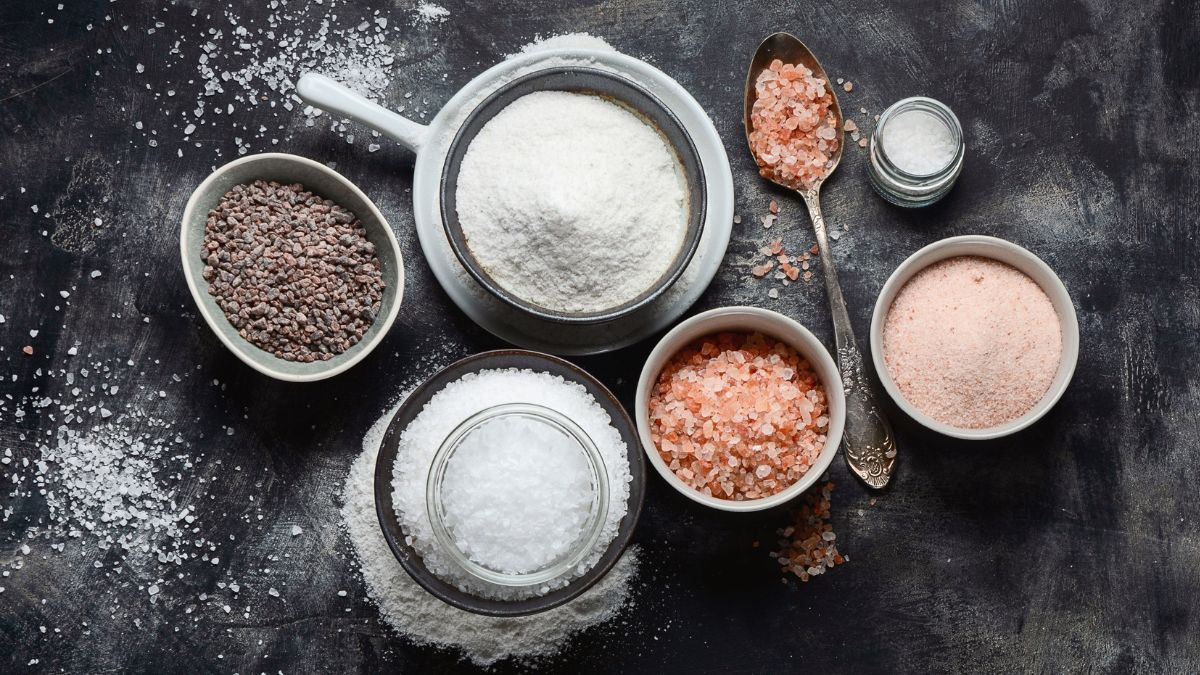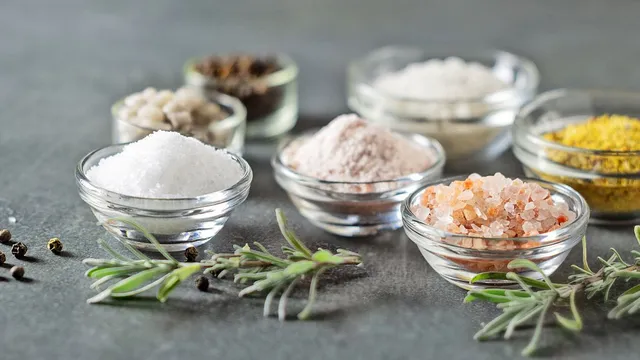- By Iram Hussain
- Tue, 04 Mar 2025 12:52 PM (IST)
- Source:JND
Salt is an important ingredient in cooking which elevates dishes from bland to grand with just a pinch. Its absence can leave food unappetising and flavourless. Beyond its culinary significance, salt is a crucial element for human health, being a byproduct of sodium, an essential mineral. Sodium plays a vital role in maintaining various bodily functions including fluid balance, nerve function, muscle contraction and blood pressure regulation. Salt helps sustain the delicate balance of electrolytes and fluids that transport nutrients to cells.
With its importance in both cooking and health, it's no wonder that salt is a staple in kitchens worldwide, available in different types to suit different tastes and needs. Here, we've listed five healthy types of salts that you can include in your diet.
Types Of Salts And Their Benefits
Pink Himalayan Salt
Pink Himalayan salt boasts a distinctive pink hue due to its unique mineral composition. It contains trace amounts of potassium, magnesium and calcium which contribute to overall nutrient intake. While these minerals offer some nutritional value, their quantities are too small to have a substantial impact on health. However, this salt helps to treat muscle cramps and also promotes better circulation.
Sea Salt
Sea salt produced through the evaporation of seawater retains minerals from the ocean including magnesium, calcium, potassium, iron, zinc and iodine. However, its coarser texture can make it slower to dissolve, potentially affecting the final flavour of a dish and require careful consideration in recipe planning and preparation. But this salt helps to treat several skin conditions.
Iodised Salt
Iodised salt, commonly known as table salt is the most widely used and readily available type. Its fine texture allows for easy dissolution in food. Iodised salt is essential in measured quantities as iodine deficiency can lead to thyroid gland issues, making it a crucial component of a balanced diet.

Types of salts to include in your diet (Image Credits: Canva)
Low-Sodium Salt
Low-sodium salt is a healthier alternative for those with blood pressure concerns. With 30% less sodium than regular table salt, it provides a better option. Its key ingredient potassium replaces some of the sodium, making it a suitable choice for individuals seeking to reduce their sodium intake and manage blood pressure.
Black Salt
Black salt, rich in iron and other minerals offers numerous health benefits. It aids in treating digestive issues, alleviates heartburn and provides relief from bloating. It can be easily incorporated into meals to promote digestive well-being and address various gastrointestinal concerns.
ALSO READ: 5 Ways To Reduce Excess Salt In Your Meals
ALSO READ: 5 Best Salt Alternatives For Good Heart Health
(Disclaimer: This article is for informational purposes only. It is not a substitute for professional advice, diagnosis or treatment.)

